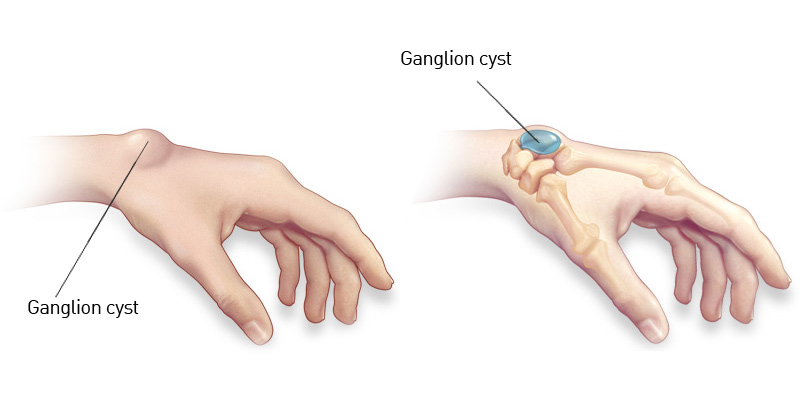Ganglion Cyst Removal in East Borneo
Search and Compare the Best Clinics and Doctors at the Lowest Prices for Ganglion Cyst Removal in East Borneo

Find the best clinics for Ganglion Cyst Removal in East Borneo
No pricing info available
Malaysia offers the best prices Worldwide
Price: $ 106
Siloam Hospitals Balikpapan, located in Balikpapan, East Borneo, Indonesia offers patients Ganglion Cyst Removal procedures among its total of 353 available procedures, across 12 different specialties. Currently, there's no pricing information for Ganglion Cyst Removal procedures at Siloam Hospitals Balikpapan, as all prices are available on request only. There is currently a lack of information available on the specialists practicing at the Hospital, and they are not accredited by any recognized accreditations institutes
WHY US?
At Medijump, we're making medical easy. You can search, compare, discuss, and book your medical all in one place. We open the door to the best medical providers worldwide, saving you time and energy along the way, and it's all for FREE, no hidden fees, and no price markups guaranteed. So what are you waiting for?

Free

Best Price

Widest Selection

Risk-Free
What you need to know about Ganglion Cyst Removal in East Borneo

Ganglion cyst removal, also called ganglionectomy, is a surgical procedure to remove a cyst from your hand, wrist, foot, ankle, or other parts of your body.
A ganglion cyst is a fluid-filled noncancerous lump that commonly develops along the joints or tendons of your hands or wrists. In some cases, they may also occur in the feet and ankles. Ganglion cysts are often painless and require no treatment. However, depending on its location and its size, it can restrict movement. It can also be painful, especially when it presses on a nerve, vital organ, artery, or vein.
When a ganglion cyst is causing severe pain, pressing against other structures, or restricting your movements, your doctor may recommend you undergo surgical removal. Ganglion cyst removal may also be performed for cosmetic reasons if the cyst is located in a highly visible area, even though it does not cause any symptoms.
What does the Procedure Involve?
Before ganglion cyst removal, your doctor will mark the incision location by drawing a line above the cyst. You will then be given a local, regional, or general anesthetic to ensure you do not feel pain during the surgery. Local or regional anesthesia numbs the affected area, but you stay awake. To help you relax, your doctor may also give you a sedative. General anesthesia will cause you to “fall asleep” during the procedure, so you will not be aware of anything.
Once you are anesthetized, your doctor will cut along the marked line using a scalpel. Then, the doctor identifies the cyst and cuts it out. Its capsule or stalk will also be removed. Once the cyst is removed, the cut will be closed with stitches.
How Long Should I Stay in East Borneo?
Ganglion cyst removal is an outpatient procedure. Therefore, you can leave the hospital the same day you have the surgery. You should plan to stay in East Borneo for at least 7 days for ganglion cyst removal. During your stay, you will have to attend a follow-up checkup where your doctor monitors your condition and remove your stitches.
What's the Recovery Time?
After surgery, you may experience some discomfort, tenderness, and swelling. Depending on the type of work you do, you may be able to go back to work within 1 or 2 days following your surgery. However, for 1 to 2 weeks after surgery, you will need to avoid activities that involve repeated hand movements, such as typing, using a computer mouse, carrying things in the affected hands, or vacuuming if the surgery is done on your hand or wrist. You should also avoid activities that make your hand vibrate, such as using power tools. If the surgery is done in your ankle or foot, you need to do less walking.
The total recovery time can take around 2 to 6 weeks until you can go back to your full normal routine.
What About Aftercare?
Your doctor will give you detailed post-operative instructions that you need to follow closely. These instructions may include:
-
Avoid getting the surgical site wet until your doctor says it’s okay.
-
Do not swim, take a bath, use a hot tub, or soak the surgical site until your doctor allows you too.
-
You may be able to eat your normal diet once you feel well. However, you may need to try bland and low-fat foods if you experience an upset stomach, such as toast, broiled chicken, plain rice, and yogurt.
-
Your doctor may give you prescription pain medicine, make sure to take it as prescribed.
-
Talk to your doctor when you can restart your medicines (such as blood-thinners or other medicines you need to treat certain medical conditions).
-
Keep the area of the incision clean and dry.
-
Anytime you lie or sit down, try to keep the area above the level of your heart to reduce swelling.
-
You may need physical therapy after you heal to regain strength, movement, and grip in your hand and wrist.
What's the Success Rate?
Surgery is considered as the most effective technique to treat ganglion cyst. However, the ganglion cyst can still reoccur even after surgery. A study found a 29.7% recurrence rate in a sample of 52 people.
As with any surgical procedure, ganglion cyst removal have some possible risks and complications. These include:
-
Infection
-
Allergic reaction to the anesthesia
-
Sensitivity around scar tissue
-
Losing the ability to move your wrist normally
-
Injuries to surrounding ligaments, tendons, or nerves.
Are there Alternatives to Ganglion Cyst Removal?
There are numerous alternatives to ganglion cyst removal, such as:
-
Aspiration – this procedure involves the use of a needle to drain the fluid from the cyst.
- Immobilization – temporarily immobilizing the area with a splint or brace may help to stop the ganglion cyst to shrink. As the cyst shrink, pressure on your nerves may also be released, relieving your pain.
What Should You Expect Before and After the Procedure
Before ganglion cyst removal, it may be hard to move the area where the cyst occurs. Ganglion cysts can also become painful. After the surgery, you will be able to use the area of your body that had the cyst without any pain and it will regain full strength. The area may also look and feel better.
Whilst the information presented here has been accurately sourced and verified by a medical professional for its accuracy, it is still advised to consult with your doctor before pursuing a medical treatment at one of the listed medical providers
No Time?
Tell us what you're looking for and we'll reachout to the top clinics all at once
Enquire Now

Popular Procedures in East Borneo
Prices Start From $175

Prices Start From $714

Prices Start From $586

Recommended Medical Centers in East Borneo for Ganglion Cyst Removal

- Interpreter services
- Translation service
- Religious facilities
- Medical records transfer
- Medical travel insurance
- Health insurance coordination
- TV in the room
- Safe in the room
- Phone in the room
- Private rooms for patients available

- Interpreter services
- Translation service
- Religious facilities
- Medical records transfer
- Medical travel insurance
- Health insurance coordination
- TV in the room
- Safe in the room
- Phone in the room
- Private rooms for patients available

- Interpreter services
- Translation service
- Religious facilities
- Medical records transfer
- Medical travel insurance
- Health insurance coordination
- TV in the room
- Safe in the room
- Phone in the room
- Private rooms for patients available

- Interpreter services
- Translation service
- Religious facilities
- Medical records transfer
- Medical travel insurance
- Health insurance coordination
- TV in the room
- Safe in the room
- Phone in the room
- Private rooms for patients available

- Interpreter services
- Translation service
- Religious facilities
- Medical records transfer
- Medical travel insurance
- Health insurance coordination
- TV in the room
- Safe in the room
- Phone in the room
- Private rooms for patients available

- Interpreter services
- Translation service
- Religious facilities
- Medical records transfer
- Medical travel insurance
- Health insurance coordination
- TV in the room
- Safe in the room
- Phone in the room
- Private rooms for patients available

- Interpreter services
- Translation service
- Religious facilities
- Medical records transfer
- Medical travel insurance
- Health insurance coordination
- TV in the room
- Safe in the room
- Phone in the room
- Private rooms for patients available

- Interpreter services
- Translation service
- Religious facilities
- Medical records transfer
- Medical travel insurance
- Health insurance coordination
- TV in the room
- Safe in the room
- Phone in the room
- Private rooms for patients available

- Interpreter services
- Translation service
- Religious facilities
- Medical records transfer
- Medical travel insurance
- Health insurance coordination
- TV in the room
- Safe in the room
- Phone in the room
- Private rooms for patients available

- Interpreter services
- Translation service
- Religious facilities
- Medical records transfer
- Medical travel insurance
- Health insurance coordination
- TV in the room
- Safe in the room
- Phone in the room
- Private rooms for patients available
Ganglion Cyst Removal in and around East Borneo
Popular Searches
- Plastic Surgery in Thailand
- Dental Implants in Thailand
- Hair Transplant in Thailand
- Breast Augmentation Thailand
- Gastric Sleeve in Thailand
- Gender Reassignment Surgery in Thailand
- Laser Hair Removal in Bangkok
- Botox in Bangkok
- Dermatology in Bangkok
- Breast Augmentation in Bangkok
- Coolsculpting in Bangkok
- Veneers in Turkey
- Hair Transplant in Turkey
- Rhinoplasty in Turkey
- Stem Cell Therapy in Mexico
- Rhinoplasty in Mexico
- Liposuction in Mexico
- Coolsculpting in Tijuana
- Rhinoplasty in Korea
- Scar Removal in Korea
- Gastric Sleeve in Turkey
- Bone Marrow Transplant in India
- Invisalign in Malaysia
- Plastic Surgery in the Dominican Republic
- Tummy Tuck in the Dominican Republic
- Plastic and Cosmetic Surgery in Poland
- Rhinoplasty in Poland
- Hair Implant in Poland
- Dental Implants in Poland
- IVF in Turkey
